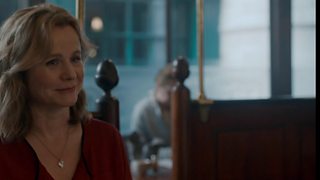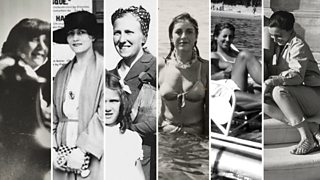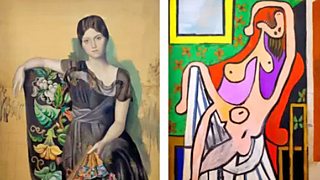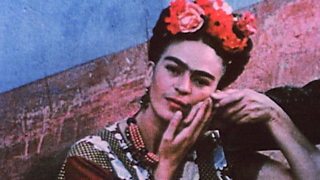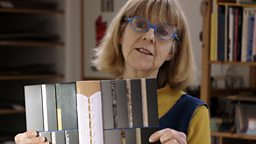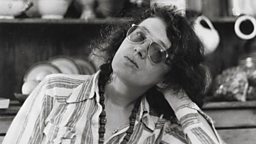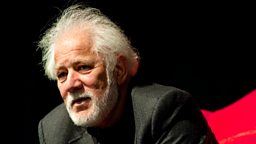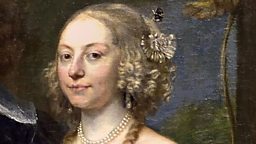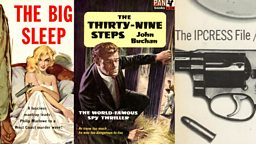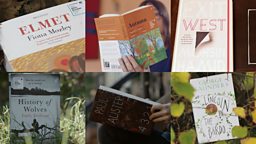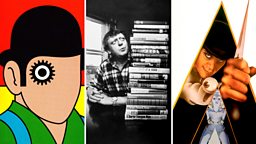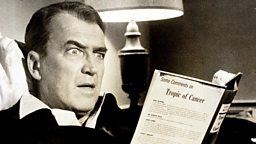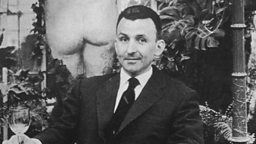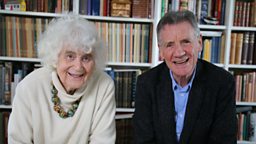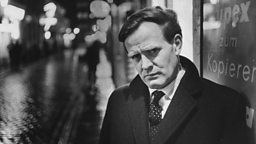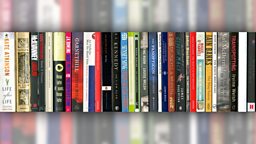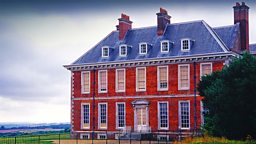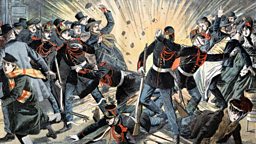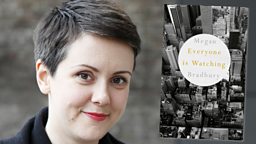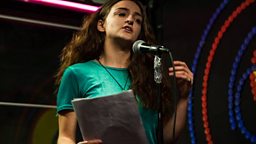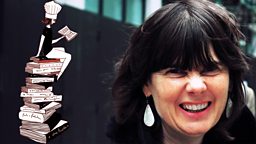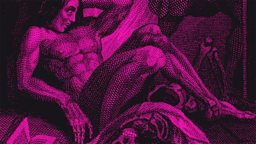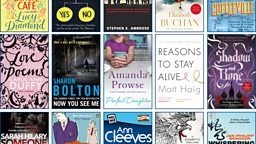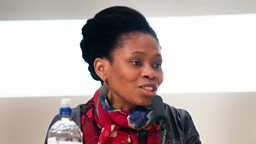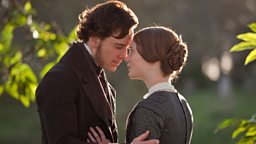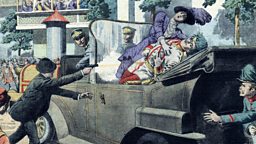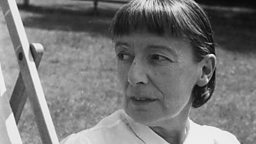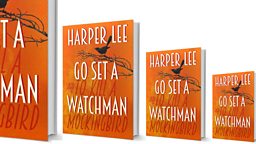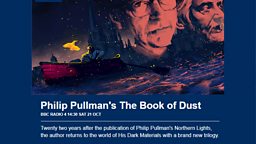From page-turners to primetime: The razor-sharp author behind new drama Apple Tree Yard
20 January 2016
This weekend, the Â鶹ԼÅÄ launches its lavish of Louise Doughty’s novel Apple Tree Yard. A sharply contemporary psycho-drama, it tells the story of a renowned scientist who risks everything by beginning an affair with a duplicitous stranger and eventually winds up in the dock. Writer and broadcaster BIDISHA appraises Doughty's work.

In Louise Doughty’s Apple Tree Yard no relationship or character is quite what they seem. And, from the law courts to Parliament to the great houses of scientific research, the country’s most venerable buildings and institutions conceal conspiracies, secrets and set-ups as shocking as they are sordid.
The adaptation puts the acting brilliance of Emily Watson front and centre in a role that mixes avarice and ambition with naivety and self-deception
Underneath the apparently modern, glittering surface of sophistication, power and success are some extremely retrograde opinions about how women should behave, which ultimately conspire to bring down the central character.
The puts the acting brilliance of Emily Watson front and centre in a role that mixes avarice and ambition with naivety and self-deception. Watson specialises in playing blazing but breakable women and in Apple Tree Yard her character, scientist , flashes between personae: brilliant thinker, ambivalent wife, public figure, affectionate mother, loyal friend, scheming lover, seduced victim, persecuted defendant.
Apple Tree Yard was Louise Doughty’s seventh novel, published in 2013; it has sold more than a quarter of a million copies in the UK and been translated into 26 languages. The TV adaptation has been written by Amanda Coe and directed by Jessica Hobbs and while it will no doubt enable a huge new primetime audience to appreciate Doughty’s clever plotting and whip-fast storytelling, I hope it compels just as many people to read Apple Tree Yard as a novel and then discover the rest of Doughty’s exceptional body of work.
Doughty's eighth and latest book, Black Water, came out last year, but she has been a published novelist since her 1995 debut, Crazy Paving.
She has been shortlisted for, and indeed judged, many of the major UK literary prizes. But it was the publication in 2010 of her sixth novel, Whatever You Love, that pulled Doughty sharply into focus as one of our most fearless and observant living novelists.
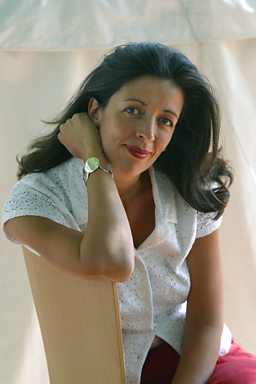

Telling the story of a woman who seeks retribution for her daughter’s accidental death, it combined a brazen honesty about women’s lives and drives with caustic wit, brilliant characterisation, high-focus contemporaneity and lean, addictive storytelling.
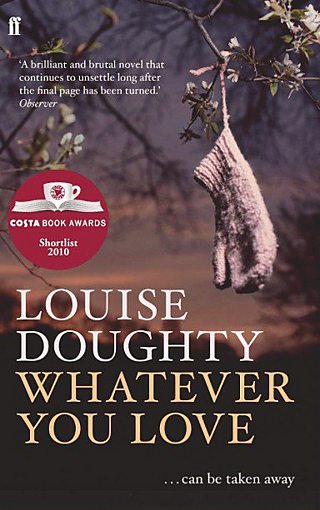
A story combining a brazen honesty about women’s lives with brilliant characterisation, high-focus contemporaneity and lean, addictive storytelling.
Whatever You Love burns with relevance, daring and candour. She starts with the shocking truth about our desires, our ambivalence and our anger, then allows the plot to carry these emotions to dangerous, disturbing (but always horribly plausible) places.
If the TV adaptation of Apple Tree Yard preserves Doughty's original narrative voice it will be a sure success. The novel is a pulsing literary work, not a throwaway effort where you sense the author is simply blocking out scenes for some future screen adaptation.
There are many brilliant lines, from the witty to the heart-stoppingly blunt: Yvonne wears “the sort of boots a middle-aged woman wears because they make her feel less like a middle-aged woman”; she admits that “no self-employed person gets any work done on a Friday, although we pretend that we do”; she writes in an unsent letter to her lover that “sex with you is like being eaten by a wolf.”
In Doughty’s words, seemingly casual details are imbued with complex meaning. As regards Yvonne’s “affair” - as she thinks of it - the truth is that she is the dupe in a game played by a cold predator and it is sordid, even pathetic. “It takes me three days to feel used. Not bad, I think to myself,” deadpans Yvonne.
The first transgression happens in a church crypt underneath the Houses of Parliament, a place of “hidden worship” afflicted with an “emptiness”.

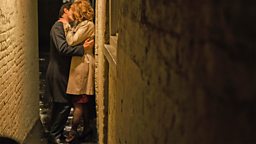
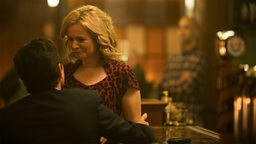
Tourist-focused Westminster, with its grand buildings dedicated to politics, history, law and science, is in fact pitted with grubby alleyways, cloakrooms, toilets and yards in which Yvonne is set up and humiliated. Yet she is drawn in, partly because “it’s so many years since I’ve had a first encounter.”
Her downfall is as breezy as a philanderer’s kiss, as savage as a knife in the back – and as compulsively readable as a great literary page-turner
Yvonne is determinedly self-critical, flagellating herself as she realises that her lover is an “operator”, a sociopathic and practiced seducer, a calculating exploiter (and worse) who can ultimately destroy her, expose her and invite the media, the public and the full force of the criminal justice system to punish her as a bad woman. As rendered in Louise Doughty’s prose, this downfall is as breezy as a philanderer’s kiss, as savage as a knife in the back – and as compulsively readable as a great literary page-turner.
Apple Tree Yard is published by Faber & Faber. The first episode of the is on Sunday 22 January at 9pm, and in the UK you can watch it on after transmission.
Apple Tree Yard: Clip and Trailer
Â鶹ԼÅÄ Writersroom
-
![]()
An in-depth Q&A with screenwriter Amanda Coe
More from Â鶹ԼÅÄ Arts
-
![]()
Picasso’s ex-factor
Who are the six women who shaped his life and work?
-
![]()
Quiz: Picasso or pixel?
Can you separate the AI fakes from genuine paintings by Pablo Picasso?
-
![]()
Frida: Fiery, fierce and passionate
The extraordinary life of Mexican artist Frida Kahlo, in her own words
-
![]()
Proms 2023: The best bits
From Yuja Wang to Northern Soul, handpicked stand-out moments from this year's Proms
